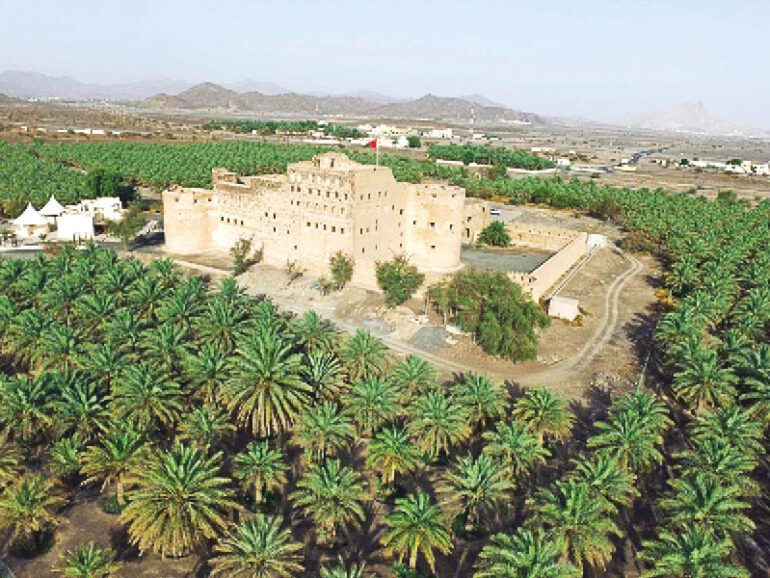The United Nations Educational, Scientific and Cultural Organization (Unesco) has recognised Oman’s rich cultural history by including two significant Omani cultural milestones in its list of anniversaries for 2024-2025. This recognition includes the 350th anniversary of the Jibreen Castle and the 150th death anniversary of renowned Omani historian and poet Humaid bin Mohammed bin Ruzaiq.
Since 1956, Unesco has been instrumental in commemorating historical events and eminent personalities of its member states, elevating their significance on a global platform. Such celebrations are pivotal in fostering international understanding, enhancing cultural exchanges and promoting peace.
An architectural gem of the 17th century, Jibreen Castle marks its 350th anniversary of construction under the reign of Imam Belarab bin Sultan al Yarubi. Completed in 1675, the castle is a testament to Oman’s architectural prowess, built by the era’s finest craftsmen and architects. Beyond its architectural magnificence, Jibreen Castle was a centre of knowledge and learning, and served as a residence for the imam and the seat of his governance.
It flourished as an educational hub, attracting scholars and educators in various fields such as jurisprudence, literature, history, astronomy, mathematics, medicine and chemistry. It produced over 40 distinguished scholars and writers under Imam Belarab bin Sultan’s patronage.
In addition to Jibreen Castle, Unesco commemorates the 150th anniversary of the passing of the 19th century Omani historian Ruzaiq. His contributions were monumental in documenting the historical phase from the rise of the Al Busaid dynasty to the end of Sayyid Said bin Sultan’s reign in 1856. His works, characterised by neutrality and meticulous research, provide invaluable insights into the European presence in the Indian Ocean and the Arab region. Ruzaiq’s writings are not only historical records but also serve as critical references for contemporary researchers in Omani history.
The inclusion of these two elements takes the total number of Omani contributions to Unesco’s celebration programme to eight. The sultanate has successfully highlighted six other Omani figures in the past, including linguist Al Khalil bin Ahmed al Farahidi in 2005, pharmacist Rashid bin Omairah al Hashimi al Rustaqi in 2013, polymath Sheikh Nour al Din Abdullah bin Humaid al Salmi and physicist Abu Muhammad Abdullah bin Muhammad al Azdi, known as Ibn al Dhahabi, in 2015, poet Nasser bin Salem al Rawahi, also known as Abu Muslim al Bahlani, in 2019, and the famed navigator Ahmed bin Majid al Saadi in 2021.
Unesco’s recognition of Omani cultural heritage underscores the sultanate’s significant contributions to the global cultural landscape, celebrating the rich tapestry of its history and the enduring legacies of its eminent personalities.
source/content: muscatdaily.com (headline edited)
_________

__________
OMAN